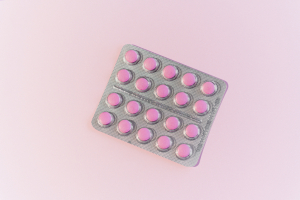
Emergency Contraceptives (EC) or the morning-after pill, as they are more popularly known, can be a blessing, especially if you have unprotected sex. While they come in many forms, the function of an emergency contraceptive is to delay or disrupt your fertilization or ovulation, thus avoiding pregnancy. In the same vein, it is necessary to clarify that emergency contraceptives do not bring medical abortion.
Let’s list some of the critical facts about emergency contraceptives as outlined by the World Health Organization (WHO):
- Taking an emergency contraceptive within 5 days of intercourse can prevent almost 95% of pregnancies. However, the sooner you take it, the more effective it is.
- You can use EC in the following scenarios:
- Sex without protection
- Existing contraceptives did not work
- Sexual assault
- Contraceptives used incorrectly
- Copper-bearing Intrauterine Devices (IUDs) and Emergency Contraception Pills (ECPs) are the two most effective emergency contraceptives. However, Copper-bearing Intrauterine Devices are more effective than Emergency Contraceptive Pills.
Copper-bearing Intrauterine Devices (IUDs)
This intrauterine device is a small T-shaped device made of copper and plastic, which a doctor or a nurse can place inside your uterus or womb. This copper-bearing Intrauterine device will trigger the release of copper (obviously), which in turn will stop the egg from being fertilized. However, using any form of contraceptive is not effective if you have already conceived.
IUDs are more effective than pills, as statistics show that less than 1% of females who use IUDs get pregnant. Moreover, suppose you have used IUD as an emergency contraceptive measure; in that case, you can leave it in your body and act as a regular contraceptive.
A pesky side-effect of using IUDs is that it is known to make your periods painful, last longer, and flow heavier. Putting in an IUD inside your body is a process that might cause some mild to serious discomfort, so ladies, make sure that you keep those painkillers handy.
Most females, including those who are HIV positive, can use the IUDs. However, make sure that you reveal your medical history beforehand so that the medical professionals can decide if implanting an IUD is the best course of action for you.
Before placing an IUD, let your doctor know if you have any of the following:
- A sexually transmitted disease (STD) and hasn’t explicitly been diagnosed yet
- An infection in the pelvic region
- Any problem in the uterus or cervix area
- Any bleeding between period cycles or immediately after sex
Emergency Contraception Pills (ECPs)
The emergency contraceptive pills recommended by WHO is one of the following:
- Levonorgestrel (LNG) and ulipristal acetate (UPA)
- Combined Oral Contraceptives (COCs) containing ethinyl estradiol and levonorgestrel
The dosage that the WHO recommends for emergency contraception is one of the following:
- Emergency contraception pills with ulipristal acetate, as a 30 mg strength single dose
- Emergency contraception pills with levonorgestrel as a 1.5 mg strength single dose
- Levonorgestrel as 0.75 mg strength two doses. Take the second dose after 12 hours of consuming the first dose
- Combined oral contraceptives, taken as a split dose, also known as the Yuzpe method. In this case, you take a dose of 100 μg of ethinyl estradiol and 0.5 mg of levonorgestrel. After 12 hours, you take another dose of 100 μg of ethinyl estradiol and 0.5 mg of levonorgestrel
Some of these emergency contraception pills are pretty regular, and you can get them at your neighborhood pharmacy over the counter. You don’t need a prescription for these medicines.
The various side effects of emergency contraception pills are the same as regular oral contraception pills. Depending upon your health system, the side effects can range from nausea, slight and unusual bleeding in your vagina, headache, stomach ache, sickness, and general fatigue. You might also experience some irregularities in your usual menstrual cycle. Do not worry if you experience any of these side effects. They are pretty regular and will disappear without any extra medication.
Conclusion
In conclusion, it is safe to say that ladies who are sexually active and don’t want to risk an unwanted pregnancy should arrange for and use contraceptives well in advance. You should also visit your gynecologist regularly for health checkups. However, since we are humans and hence fallible, slip-ups do occur. In such cases of slip-ups, ensure that you take the necessary steps as soon as possible. Whether you opt for pills or IUDs, they should enter your system as quickly as possible after having unprotected sex.
It is a general myth that using emergency contraception can reduce fertility. You can use emergency contraceptives without it affecting your fertility in the future. If you plan to take emergency contraception pills, ensure that you do that within 3 days. After all, they are called the morning-after pill for a reason. If you are using IUDs, they should also be fitted maximum within 5 days after intercourse.
Source link: https://www.who.int/news-room/fact-sheets/detail/emergency-contraception



